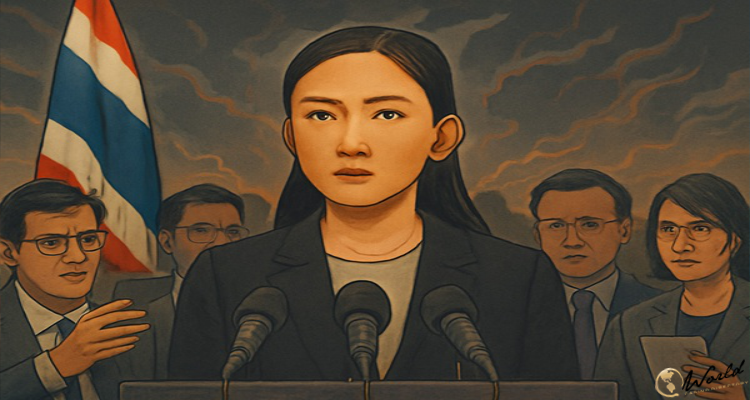Amid growing political instability and the looming dissolution of the House, tourism industry leaders in Thailand are expressing deep concerns about the government’s rush to pass the controversial Entertainment Complex Bill, which includes plans for legalizing casinos. They argue that pushing forward with this legislation could provoke public unrest and harm the already fragile tourism sector, especially at a time when the country is grappling with a border dispute with Cambodia.
Political turmoil and uncertainty:
The Thai government, currently led by Prime Minister Paetongtarn Shinawatra, is facing significant internal challenges. The coalition government has become increasingly unstable due to rifts between its parties. Political analysts predict the possibility of an early House dissolution, which could disrupt the passage of major policies, including the casino legalization bill. Thienprasit Chaiyapatranun, president of the Thai Hotels Association, emphasized the urgency of addressing the nation’s economic struggles and the border conflict with Cambodia before pushing forward with contentious measures like the casino bill.
“The government must focus on stabilizing the economy and resolving the border issue rather than rushing into legislation that could cause social unrest,” Chaiyapatranun said. He added that while the government’s 157-billion-baht stimulus package is a step in the right direction, the lack of public consultation on the casino bill raises serious concerns in the private sector. He urged the administration to prioritize transparency and suggested that a national referendum be held before advancing the legislation.
The Entertainment Complex Bill, which proposes the development of large-scale casino resorts to boost tourism, has been a hotly debated issue. While the government promotes it as a key economic driver, projecting up to 39.25 billion baht in annual revenue and a 10% increase in foreign tourist arrivals, the bill has faced significant opposition. One of the most notable sources of opposition comes from the private sector, which is reluctant to support the initiative without seeing a clear and finalized draft of the legislation.
Political and economic fallout:
The current political turmoil is compounded by the ongoing border dispute with Cambodia. In recent weeks, tensions have flared between Thai and Cambodian troops, leading to violent clashes near the border. This has prompted the Thai government to impose restrictions on travel to Cambodia, including reduced border crossing hours and a ban on Thai nationals entering Cambodia for non-essential purposes. The border conflict, along with political bickering, has already begun to impact the economy, with business leaders and the public frustrated by the lack of focus on national issues.
Sisdivachr Cheewarattanaporn, advisory chairman of the Association of Thai Travel Agents, voiced similar concerns. He criticized the government for prioritizing internal political disputes over the country’s national interests. “The constant political infighting has eroded public trust and weakened confidence in the economy,” Cheewarattanaporn remarked, according to the Bangkok Post. “The focus should be on economic recovery and resolving the Cambodia border issue, not on introducing controversial new laws.”
As the Bhumjaithai Party, which had previously expressed reservations about the casino bill, withdrew from the coalition due to the fallout from a leaked phone call between Prime Minister Paetongtarn and former Cambodian leader Hun Sen, the prospects for the bill’s passage have become even more uncertain. The party’s departure has left the coalition with a slimmer majority in the House of Representatives, which makes it harder to pass contentious legislation, including the casino bill.
The political crisis has also intensified opposition to the bill, with over 53,000 people signing a petition demanding a national referendum on the legalization of casinos. The petition reflects widespread concern over the potential social impact of legalizing casinos, with critics fearing that it could lead to increased gambling addiction, crime, and social instability.
The government faces a critical juncture in its attempt to pass the Entertainment Complex Bill. While the bill offers potential economic benefits, the growing opposition, coupled with political instability, could delay or even derail its passage. The outcome of this legislative battle will not only determine the future of the casino industry in Thailand but also shape the country’s political and economic landscape in the coming years.


